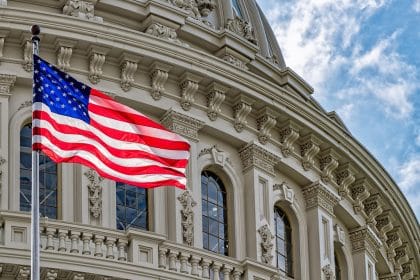Apart from clear crypto regulation, the bill seeks to fund $1 trillion in both infrastructure maintenance and new initiatives like electric vehicle charging stations. It is the first part of Biden’s infrastructure agenda.
On Monday, the US Senate rejected the crypto tax amendment to the $1 trillion infrastructure bill. The proposal was put forward by Senators Pat Toomey (R-Pa.), Cynthia Lummis (R-Wyo.), Kyrsten Sinema (D-Ariz.), and Rob Portman (R-Ohio). It addressed concerns from the cryptocurrency industry that the original bill would require entities, miners, and software developers to report tax data to the Internal Revenue Service that they didn’t have access to. The crypto tax amendment offered to exempt crypto transaction validators from a broadened definition of “broker”.
Issues on Defining “Brokers”
The negotiations between three beforementioned Republicans and two Democrats, Mark Warner and Kyrsten Sinema, lasted several days. Pat Toomey, Cynthia Lummis, Kyrsten Sinema, and Rob Portman were supporting the idea that software developers, node operators, and validators would not have to carry or report transaction information. But brokers would be required to.
Pat Toomey said:
“We’re not proposing anything sweeping or anything radical – [the compromise] makes clear that a broker means only those persons that conduct transactions where consumers buy, sell and trade digital assets.”
The supporters of the amendment believe that the lack of proper definition and regulation would disrupt the development of the technology.
“If we were not to adopt this amendment, then we could be doing a lot of damage. We could have a very chilling effect on the development of this technology, and that’s what I am most concerned about,” added Toomey.
At present, the bill defines a “broker” as “any person who (for consideration) is responsible for regularly providing any service effectuating transfers of digital assets on behalf of another person”. According to crypto supporters, such a definition is too broad. It potentially targets miners, developers, stakers, and others who do not have customers and therefore do not have access to the information needed to comply.
However, the proposal to amend the bill and exempt crypto transaction validators from the definition did not receive support. Following the rejection, the Blockchain Association stated:
“As written, the infrastructure bill contains harmful IRS reporting requirements that many in the crypto ecosystem lack the capabilities to comply with. As a result, many crypto players will be forced to move overseas, leaving future jobs and economic growth on the table.”
Biden’s Initiative
Apart from clear crypto regulation, the bill seeks to fund $1 trillion in both infrastructure maintenance and new initiatives like electric vehicle charging stations. It is the first part of Biden’s infrastructure agenda. It would provide $550 billion over five years in new federal funds for roads, bridges and other physical infrastructure projects.
According to Biden, it is “the most significant long-term investment in the infrastructure and competitiveness in nearly a century”. Besides, it would raise about $28 billion over 10 years by updating Internal Revenue Service reporting requirements for cryptocurrency brokers, just as stockbrokers report their customers’ sales to the IRS.
The next phase of Biden’s agenda would include a $3.5 trillion proposal for human infrastructure. The latter includes childcare support, home health care, education and other expenditures.
All these non-crypto issues have also raised debates and hot discussions among the Senators.
next